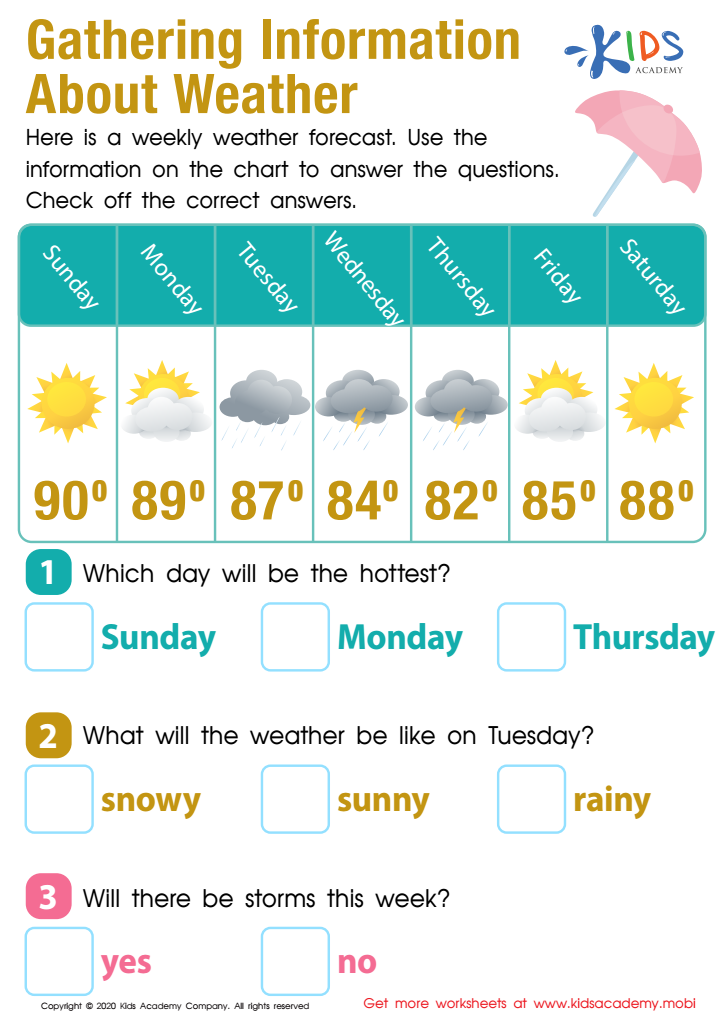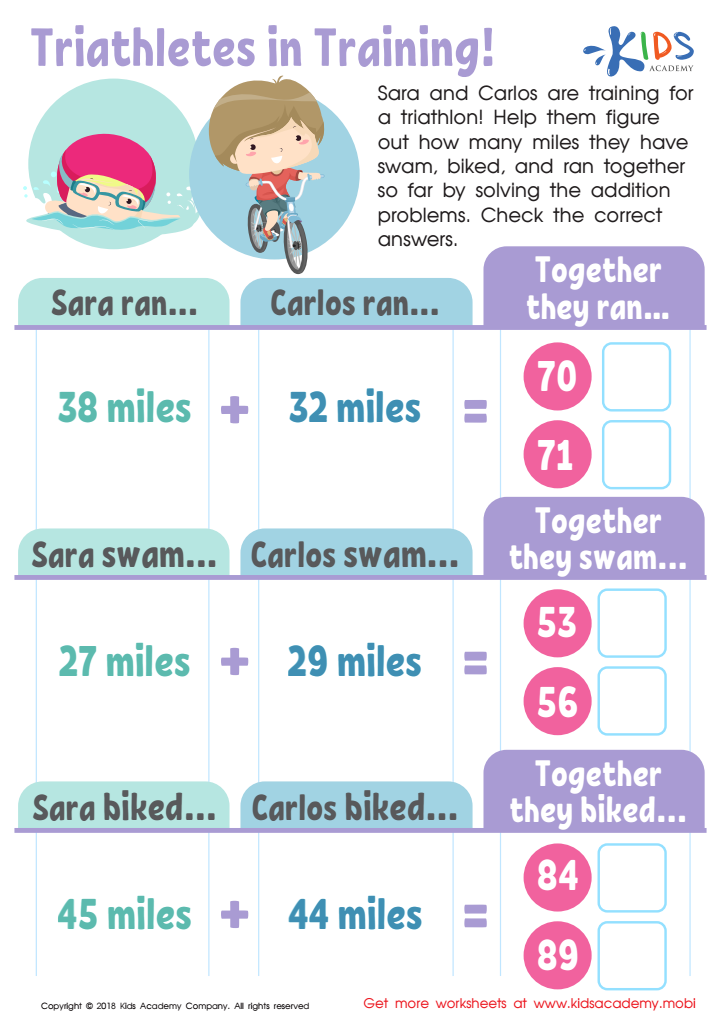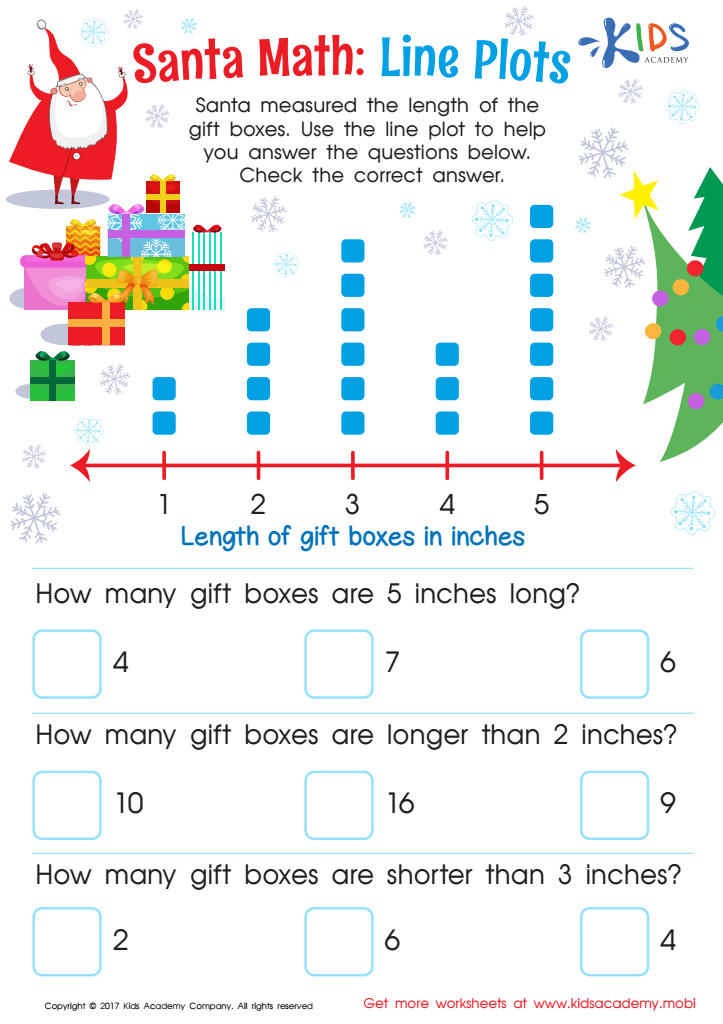Data interpretation Normal Worksheets for Ages 3-7
3 filtered results
-
From - To
Enhance your child's analytical skills with our Data Interpretation Normal Worksheets for ages 3-7. Designed by educational experts, these engaging worksheets help young learners identify, organize, and analyze information through fun and interactive activities. Kids will master the basics of data interpretation, such as understanding graphs, charts, and simple tables, fostering critical thinking and problem-solving abilities from an early age. Perfect for both classroom use and home practice, these printable resources provide an invaluable foundation for future mathematical learning. Unlock your child's data literacy potential today with our comprehensive and enjoyable worksheets. Visit Kids Academy to explore and download now!


Gathering Information About the Weather Worksheet


Triathletes in Training Worksheet


Line Plot Worksheet
Parents and teachers should care about data interpretation for children ages 3-7 because developing these skills at an early age is crucial for several reasons.
Firstly, data interpretation lays the foundation for math literacy. Children at this age are naturally curious, and introducing concepts like counting, sorting, and simple graphs taps into this curiosity and builds numerical understanding. This early exposure can spark an interest in mathematics, setting the stage for more advanced concepts later on.
Secondly, data interpretation enhances critical thinking and problem-solving skills. When young children learn to sort objects by color, size, or type, or to understand patterns and charts, they are practicing skills that are essential for decision-making and logical thinking. These abilities are not just important in academic settings but are invaluable life skills.
Additionally, understanding data fosters a sense of autonomy and confidence. As children learn to make sense of information and draw their own conclusions, they build self-esteem and independence. They become better equipped to understand their environment and make informed choices.
Finally, teaching data interpretation supports early science and literacy education, bridging subjects in a seamless, integrative way. Simple activities related to data analysis can improve not only mathematical skills but also reading comprehension and scientific inquiry, making learning fun and interconnected.
Overall, fostering data interpretation skills in early childhood establishes a solid foundation for lifelong learning and success.

 Assign to My Students
Assign to My Students
















